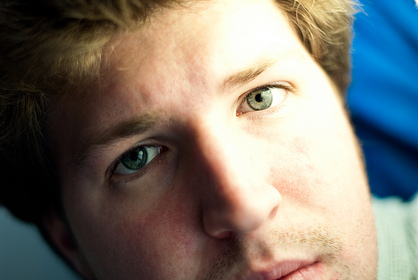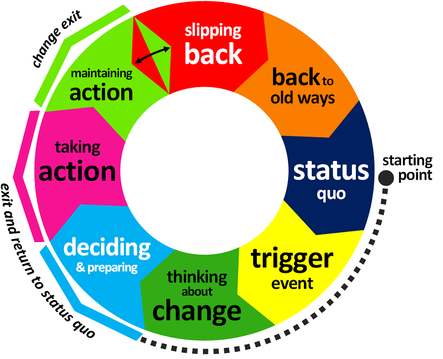|
New York Times investigative reporter, Charles Duhigg. discusses his new book 'The Power of Habit: Why We Do What We Do in Life and Business'. Charles Duhigg how we can change the bad habits that hold us back in life, and how we are manipulated into consumer habits.
0 Comments
It's Junk Thinking not Junk Food that's the problem! I'm not trying to plug Tony Ferguson but I think this ad is fantastic. It really gets to the root of the issue for so many of us struggling with long term weight management. The root of the issue being that to achieve long term success we must address, and ultimately change the way we think. This change in thinking will then alter how you act on the various decision points encountered everyday, which if done consistently will lead to a new you.
The difference really is in the long term vs short term approach. In the short term many of us can beat junk food. We are disciplined, we follow diets we don't enjoy, we exercise regularly all the while thinking it shouldn't be this hard. In the long term as many of us know, this doesn't always work. Why? Because this approach doesn't necessarily fit with who we are and how we think. We are going through the motions of a healthy lifestyle but it is in contrast with how we are still thinking. To achieve long term success we have to change the thing that will always be with us... Our thoughts and our thinking. Only then will we be able to incorporate a healthy lifestyle into day to day living. If you are what you eat, then what does it mean that the average American consumes 130 pounds of sugar a year? Sanjay Gupta reports on new research showing that beyond weight gain, sugar can take a serious toll on your health, worsening conditions ranging from heart disease to cancer. Some physicians go so far as to call sugar a toxin. From CBS News
Sometimes all it takes to make a change is a single thought. Although many things must happen between this hypothetical thought and an actual change being made it is this initial thought that often triggers the process.
Needless to say depending on the thought the change could be positive or negative. For example a thought such as “If they can do it so can I” might trigger an individual to change their lifestyle from sedentary to active. Whereas a thought such as “now that I have a family I don’t have time to exercise” might do the opposite in that it could trigger an individual to change their lifestyle from active to sedentary. So what does this mean? Quite simply it means… the way we think about a situation or event affects the way we feel and together these affect how we act Most of what you think you know about weight loss is wrong! You've been lied to! Bacon and eggs are good for you. Low fat milk is not. And sugar is poison, and it's addictive. So believes David Gillespie, author of Big Fat Lies: why the diet industry is making you sick, fat and poor, who is in conversation with Paul Barclay.
Imagine that there was a pill that if taken daily would keep you healthy and slim. In addition this pill would allow you to live to 100 years old all the time experiencing a good quality of life. Would you take the pill? The answer for most would be… Yeah. Why not?
But here’s the catch. If you choose to take the pill you can never see your family again. Would you still take the pill? The answer for most or at least for a lot of people would be… No way! So what does this tell us? It tells us that despite knowing something is good for us, for example eating a healthy diet and getting regular exercise, there are always other things (barriers) that get in the way of doing them. Furthermore these barriers will often be valid and of significant importance in their own right for example, family, social life and money. So what do we do? The Transtheoretical Model of Behaviour Change describes how people can move through various phases when they undergo change in their lives.
The research behind the Model is dedicated to solving the problem of how people intentionally change their behaviour, with and without professional intervention. The following question was the foundation for this investigation; Are there basic, common principles, or stages that commonly occur when people make a change? The research showed that YES! There were indeed similar structures underlying behaviour change in general, and thus the Transtheoretical Model of Behaviour Change (1983) was born. The diagram above, the Exercise Motivation Change Cycle is an adaption of the original model. |
AuthorMatt Williams Archives
December 2015
Categories
All
|
|
Exercise Change© 2011-2022 ● exercisechange@gmail.com ● 021 107 1270 ● (int) +64 21 107 1270
|





 RSS Feed
RSS Feed
